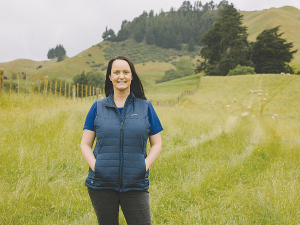Dairy farmers are set for another profitable season but profit margins will shrink compared to last season, says Rabobank senior analyst Emma Higgins.
She notes that New Zealand farmers, like many farmers around the world, are juggling inflationary input cost pressures.
"We anticipate key input costs for dairy farming in New Zealand - fuel, fertiliser, feed, and labour - to remain elevated throughout 2022 and into 2023," Higgins says.
"Farm profitability remains likely for most New Zealand dairy farmers, but with a jump in their cost base for 2022/23, profit margins will be smaller than the previous season."
Rabobank is forecasting a milk price of $9/kgMS for the season that started June 1.
While the bank’s forecast remains unchanged, Higgins notes that there are both considerable upside and downside factors to this price given the heightened uncertainty in the operating environment.
“In recent weeks we have seen geopolitical tensions — one of downside risks flagged in our Seasonal Outlook report — jump front and centre after China voiced their displeasure at New Zealand’s recent joint statement with the US that followed Prime Minister Ardern’s meeting with President Biden at the White House late last month.
“The statement was critical of China, and this has raised uncertainties over the ongoing trade relationship between the two countries.”
Higgins notes that around 40% of New Zealand’s dairy exports sail to China, its largest trading partner.
China also relies heavily on New Zealand’s dairy imports, with nearly 90% of China’s whole milk powder, 80% of butter and fats, 40% of skim milk powder and 60% of cheese coming from New Zealand.
“In a worst-case scenario, the geopolitical tensions could further escalate leading to New Zealand, even temporarily, losing part or all of its Chinese market access. And this would be a huge blow to both countries and the wider global dairy market,” Higgins says.
Weakening Demand
Despite global milk production to continue decreasing, weakening global demand is expected to create a scenario that will see moderate price declines in dairy commodities during the second half of the year, according to new global report by Rabobank.
The report says milk production in the “Big-7” dairy export regions (New Zealand, Australia, the EU, the US, Uruguay, Brazil and Argentina) has contracted year-on-year for three consecutive quarters and is forecast to contract for a fourth consecutive quarter in quarter two 2022 — something which hasn’t happened since 2012-2013.
“The current slowdown in global milk output is directly related to higher costs of production and weather events. In the past, production has recovered and surpassed previous peaks, but now there are structural issues that could limit a significant rebound in production from some key exporters,” says Rabobank senior analyst Emma Higgins.
“Dairy herds in New Zealand and Europe have limited scope for growth and are more likely to contract under current and proposed regulations and environmental pressures. In South America, competition from grains and oilseeds for land and capital continues to intensify, limiting dairy expansions.”


















